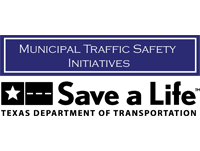
Texas Municipal Traffic Safety Initiatives (MTSI) was established in 2008 to strengthen the ability of municipal courts to combat impaired driving. The program was designed to educate the judiciary on impaired driving laws, issues, legislation, and trends and to provide courts with the resources to educate their communities on the dangers of impaired driving.
Texas has more impaired driving fatalities than any other state, and municipal courts come into contact with more impaired driving defendants than any other level of the Texas judiciary. MTSI provides training on impaired driving laws and procedures to judges, prosecutors, and court staff for which they can earn continuing legal education credits, because when laws and procedures are properly followed by the court, convictions are less likely to be overturned. In addition, the program helps courts become involved in prevention measures in their own communities, hosts an awards competition, and assists courts with alternative sentencing for juveniles convicted of alcohol-related offenses. MTSI’s preventative measures place equal focus on those charged with impaired driving offenses and those in court for less serious offenses, with the idea that those charged with crimes of any severity are more likely than other people to re-offend and that if defendants receive impaired driving education their first time in court, it will lessen the probability that they will commit a subsequent offense.
Training is conducted both in-person and via webinars. Courses offered included Blood Warrants and Kids, Disturbing Trends in Alcohol and Drug Abuse, Social Hosting, Bond Conditions for Impaired Driving, Drugged Driving, Standard Field Sobriety Testing, Ignition Interlock Compliance Strategies, and many more.
In 2015, the Texas Department of Transportation (TxDOT) recognized MTSI as a model program in the Best Practices section of its Traffic Safety Annual Report. This past year, MTSI provided more than 9,000 hours of training, assisted 271 courts with anti-DUI exhibits, and shipped impaired driving resources to more than 1,500 courts and other municipal organizations.
